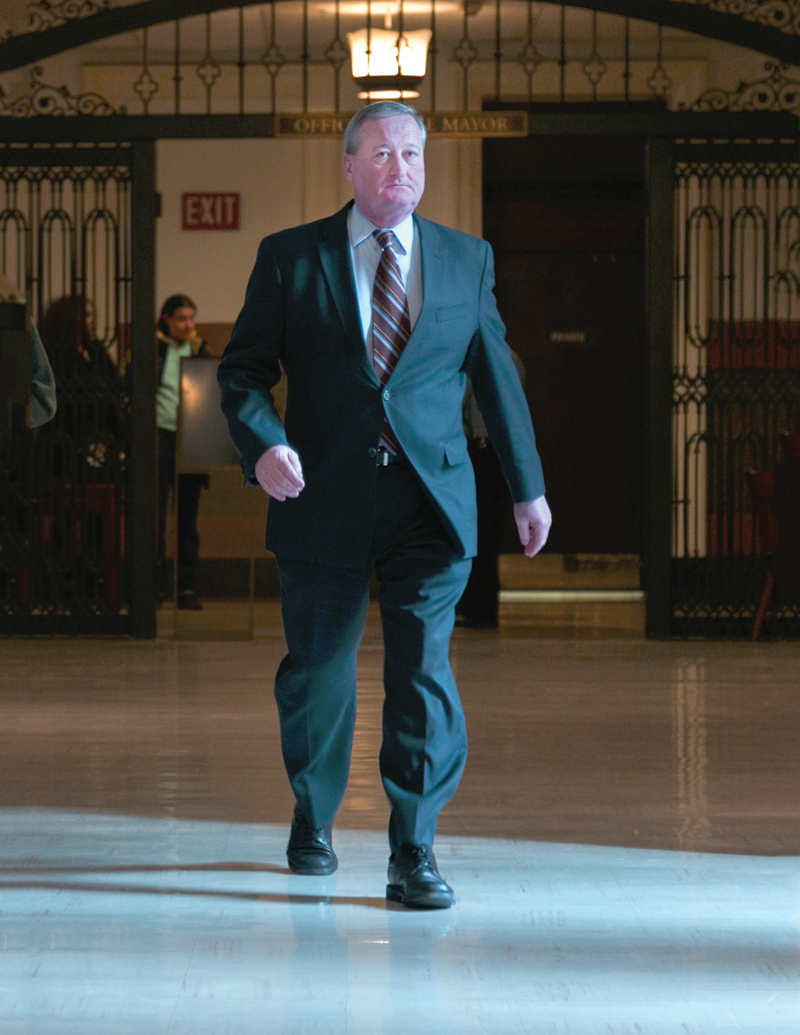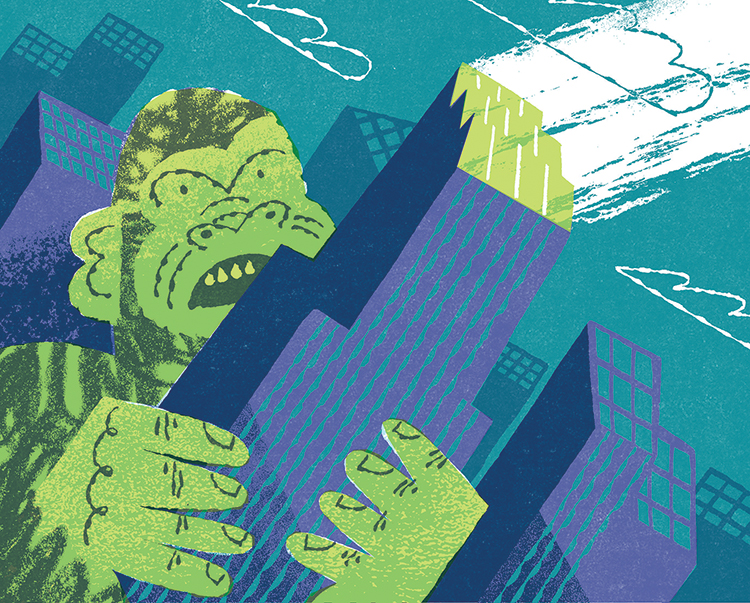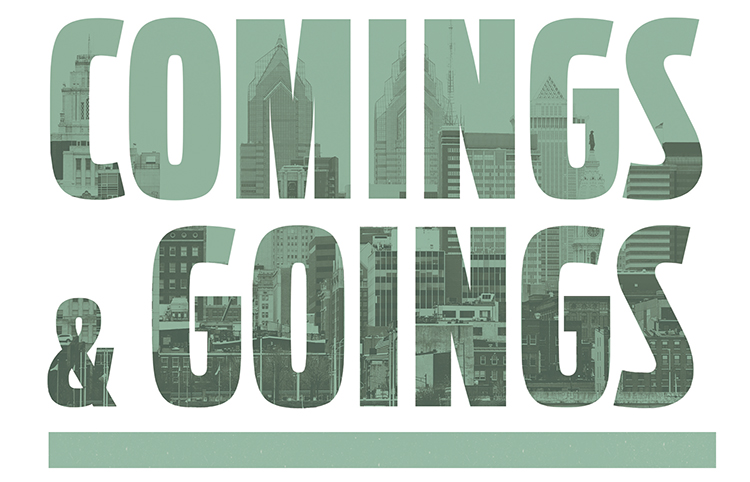Photo courtesy of Kenney 2015
Power Shift
by Heather Shayne Blakeslee
On Nov. 3, the day before Mayor-elect Jim Kenney officially won his post, he started his public appearances for the day at South Philadelphia’s Barbacoa, the former spot of Vegan Commissary at 1703 S. 11th Street. The tiny restaurant was filled with a few Latino families with kids in tow, a smattering of restaurant owners and workers and a handful of press. Nominally, it was a campaign stop, but it’s likely that most everyone crammed into the colorful space and taking in the smells of a lunch being prepared knew that the election was a foregone conclusion—that they were literally rubbing elbows with next mayor of Philadelphia.
The hosts were Barbacoa co-owners Benjamin Miller and Cristina Martinez, a married couple who operated a food truck before their booming business sent them looking for a permanent location. They opened their restaurant this year on the Fourth of July.
The pair is outspoken on the issue of providing support to undocumented workers in America. It’s an issue that directly impacts their business and family; Martinez is not a U.S. citizen. Outside the restaurant before the event, Miller didn’t mince words. “She’s undocumented,” he said, “which put us in an interesting and unique position to try to talk about this. Her son is also working with us. And yet, she doesn’t have the right to work.” He said that Kenney is “very progressive” on this issue. “We’re glad to have his support to try to take this issue to the White House.”
While Miller talked about his hopes for bringing undocumented workers out of the shadows, Kenney strolled up the bright street, unaccompanied by any staff, and walked into the restaurant to get started. It was a low-key scene that perfectly encapsulated Kenney’s comfort in his home turf of South Philadelphia, his ease with the mix of old and new residents that sent him into the mayor’s office and the importance of small business owners and new immigrants to the city’s economy.
Kenney began by sitting down at a table across from Miller and reminding the attendees that “some of the Italian Americans, when they first came to the United States, didn’t have documents either,” and that newcomers were not, “…illegal immigrants. They’re human beings that don’t happen to have the right paperwork at the moment.” He called out supporters of less humane politics as “racist” and “xenophobic.” He finally summed up the situation of recent arrivals and would-be detractors in his infamously blunt style. “They’re not white Europeans,” he said. “So what?” It was a sentiment—and a direct approach —that Miller appreciated. Kenney went on at length about respecting and protecting residents of Philadelphia who may not be citizens, but are contributing to Philadelphia nonetheless.
Grid used the opportunity to ask Kenney about his commitment to protecting immigrant families and people of color from the pollution that disproportionately affects them in Philadelphia, particularly in the fenceline communities that surround the site of Philadelphia Energy Solutions (PES) located in South Philadelphia. The company has been relentlessly lobbying City Council and the economic development community in an effort to make Philadelphia a petrochemical hub. Kenney responded that he couldn’t comment on a plan that didn’t exist. While PES CEO Phil Rinaldi was originally named to Kenney’s economic development advisory team, he was absent from the transition team.
Outside the restaurant, Kenney reiterated his stance: “Right now, there’s no plan. I can’t comment or criticize a ‘no plan,’ and when there is a plan, we’ll look at it and see what we can do to make it safe.”
Despite his perhaps unintentional characterization of a potential plan being a “how” not “if” scenario, Kenney is insistent that there won’t be any backtracking on environmental issues, and that a top priority of his when he takes up residence in Room 215 in City Hall is “continuing the sustainability issues that Michael Nutter’s administration had put forward.”
He also believes we have the best bike share program in the country and that he’ll be “expanding bike share to every neighborhood in the city.” Other priorities he mentioned were “to expand our ability to control our stormwater, to keep our rivers clean,” he said. “To clean up our sometimes dirty city.”










